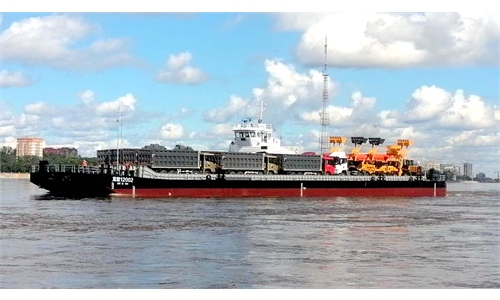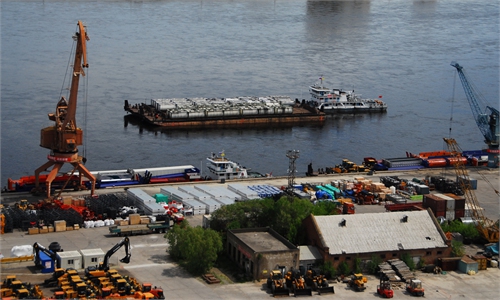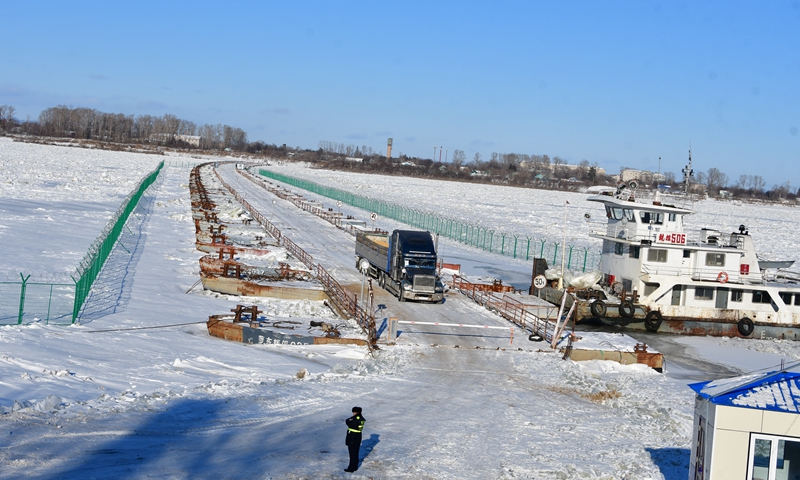
The newly opened passage on the frozen Heilongjiang River on the China-Russia border Photo: Courtesy of Luobei Entry-Exit Border Inspection Station
The largest and the only transportation passage of its kind on the China-Russia border river Heilongjiang River in Northeast China opened to traffic on Tuesday. The passage, which connects Luobei in Heilongjiang Province and Russia's Amurzet, will tap into greater potential for bilateral ties as the two sides look to upgrade trade to a new level.
The passage, which initially opened in late 2019 for around 20 days, has reopened three years later amid China's optimized epidemic controls. Its opening serves as an important boost for booming China-Russia trade and economic relations, experts said.
The opening came after Chinese and Russian leaders had a meeting via video link on Friday, during which China stressed that both sides should further make good use of existing mechanisms to push for progress in cooperation on economy, trade, energy, finance and agriculture.
The passage is over 900 meters long and around 12 meters wide with a dual carriage way, the largest of its kind in terms of span, making construction very challenging.
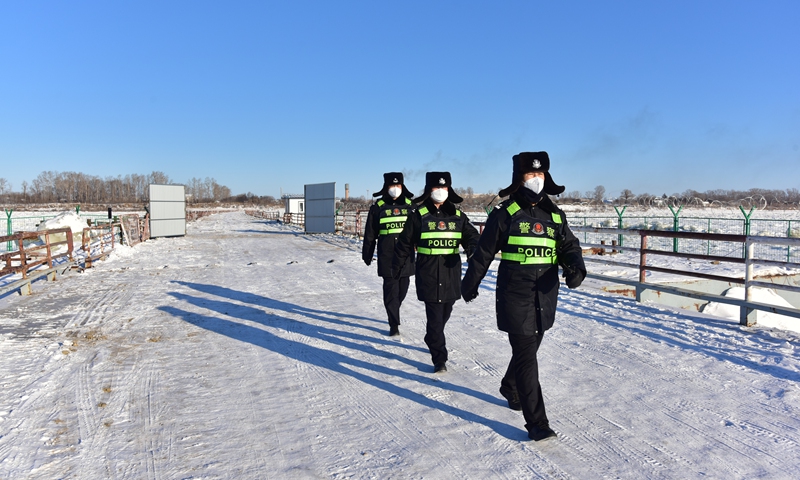
The newly opened passage on the frozen Heilongjiang River on the China-Russia border Photo: Courtesy of Luobei Entry-Exit Border Inspection Station
Yang Baochao, deputy captain of the Luobei Entry-Exit Border Inspection Station, told the Global Times on Tuesday that the passage was built to meet growing cross-border cargo transportation needs.
The Luobei port plays an important role in cargo transportation. In the summer, Russian agricultural goods such as soybeans, flour, milk and aquatic products are transported to China in large quantities, while products such as mechanical products and ceramic tiles from China are delivered to Russia.
With the launch of the passage, trade of the magnitude can now be conducted in winter, when the river is frozen.
"The passage enables up to 60 heavy trucks carrying 20 tons of goods to pass through the border in a day," Yang said.
To ensure efficiency, the border inspection station communicates with companies in advance to get a better understanding of the trucks and goods to be involved in border crossing.
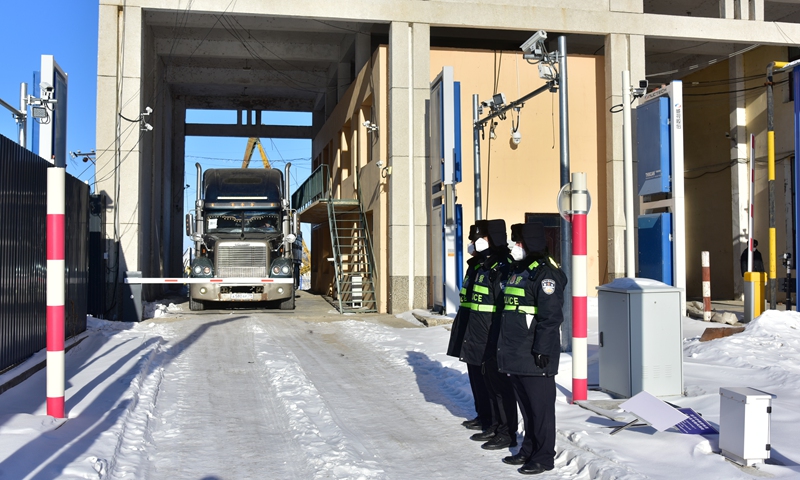
The newly opened passage on the frozen Heilongjiang River on the China-Russia border Photo: Courtesy of Luobei Entry-Exit Border Inspection Station
"We are simplifying customs clearance by providing one-stop services for truck drivers," Yang said.
The opening of the channel is the result of the joint efforts of China and Russia, which will effectively promote bilateral trade.
From January to November 2022, bilateral trade in goods reached $172.41 billion, a solid step toward the $200 billion target for the year.
Experts said that the passage is opening at a time when Russia aims to strengthen the economy in the Far East, while China, after three years of the epidemic, is optimizing its epidemic control measures and aims for strong momentum for economic revival.
The passage's opening also comes in response to inadequate transportation capacity amid surging bilateral trade.
"In the past, bilateral trade flows mostly depended on a few large ports. We need to expand the opening of ports and upgrading of transportation capacity," Song Kui, president of the Contemporary China-Russia Regional Economy Research Institute, told the Global Times on Tuesday.
Several related projects were launched in 2022, creating many firsts in bilateral cooperation.
For example, the first China-Russia cross-river railway bridge connecting Tongjiang in Heilongjiang with Nizhneleninskoye in Russia's Far East was opened to traffic in mid-November.
Other examples include the opening of the first cross-border highway bridge linking Heihe and Blagoveshchensk on June 12, another signature project to reduce transportation costs and upgrade trade flows.
The opening of the new passage reflects growing bilateral trade between China and Russia, which despite external challenges has grown stronger and more resilient, Song said.
